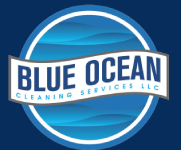The Role of Cleaning in Health and Safety
Clean environments play a vital role in keeping people healthy. Proper cleaning helps reduce the spread of germs, which can cause illnesses. It also ensures that spaces meet health guidelines set by authorities. This is important for places like hospitals, schools, and offices where many people gather. Understanding how cleaning supports these standards can help you maintain a safe environment.
Health Benefits of Regular Cleaning
Regular cleaning keeps buildings free from dirt and germs. Dust and allergens can harm those with breathing problems or allergies. By removing these, you create a healthier space for everyone. Clean surfaces also prevent bacteria from spreading, helping to protect against infections. These benefits highlight why routine cleaning is essential for health compliance.
Understanding Building Cleaning Services
building cleaning services are specialized tasks aimed at maintaining cleanliness in different settings. They focus on various areas like floors, windows, and high-touch surfaces. Hiring professionals ensures thorough cleaning, often using advanced techniques and equipment. This expertise is critical in meeting strict health standards and ensuring all parts of a building are clean and safe.
The Importance of Hiring Professionals
When it comes to building cleaning services, hiring professionals offers several advantages. Experts have access to the right tools and cleaning agents needed for effective results. They know how to tackle tough spots and use methods that minimize risks. Professional cleaners follow industry guidelines, ensuring compliance with health regulations.
Addressing Common Cleaning Challenges
Maintaining a spotless environment isn’t always easy. High-traffic areas tend to get dirty quickly. Certain surfaces require specific cleaning solutions to avoid damage. There might be issues related to scheduling regular cleanings without disrupting daily activities. Overcoming these challenges requires a strategic approach to ensure consistent cleanliness.
Effective Solutions for Cleaner Spaces
Implementing effective cleaning strategies makes a significant difference. Here are some steps to enhance your cleaning regimen:
- Create a detailed cleaning plan covering all areas
- Schedule regular deep cleanings during low-traffic times
- Use eco-friendly products that are gentle yet effective
- Train staff on proper cleaning techniques and safety protocols
These solutions ensure that your space remains clean and compliant with health standards.
Adopting Best Practices for Optimal Results
Following best practices is key to achieving high cleaning standards. It’s important to stay updated with industry trends and innovations. Using new technologies can improve efficiency and effectiveness in cleaning processes. Additionally, regularly reviewing and updating cleaning protocols ensures they meet current health requirements.
Regulatory Standards You Need to Know
Various regulations govern building cleanliness, particularly in public places. Compliance with these standards is crucial to avoid penalties and ensure everyone’s safety. For example, guidelines may dictate how often certain areas should be cleaned or what types of disinfectants to use. Familiarizing yourself with these rules helps in planning appropriate cleaning schedules.
A Cost-Effective Approach to Cleanliness
While professional cleaning services may seem costly, they offer great value in the long run. Investing in quality cleaning prevents health-related issues that could lead to higher costs later. Moreover, well-maintained buildings prolong the lifespan of facilities, offering better returns over time. Prioritizing cleanliness is both an economical and wise decision.
Your Partner in Maintaining Standards
Blue Ocean Cleaning Services LLC is dedicated to helping you maintain impeccable cleanliness standards. Contact us at (208) 252-9070 to discuss customized solutions tailored to your needs. Located in Caldwell, ID, our team excels in providing comprehensive cleaning services that align with health regulations.


